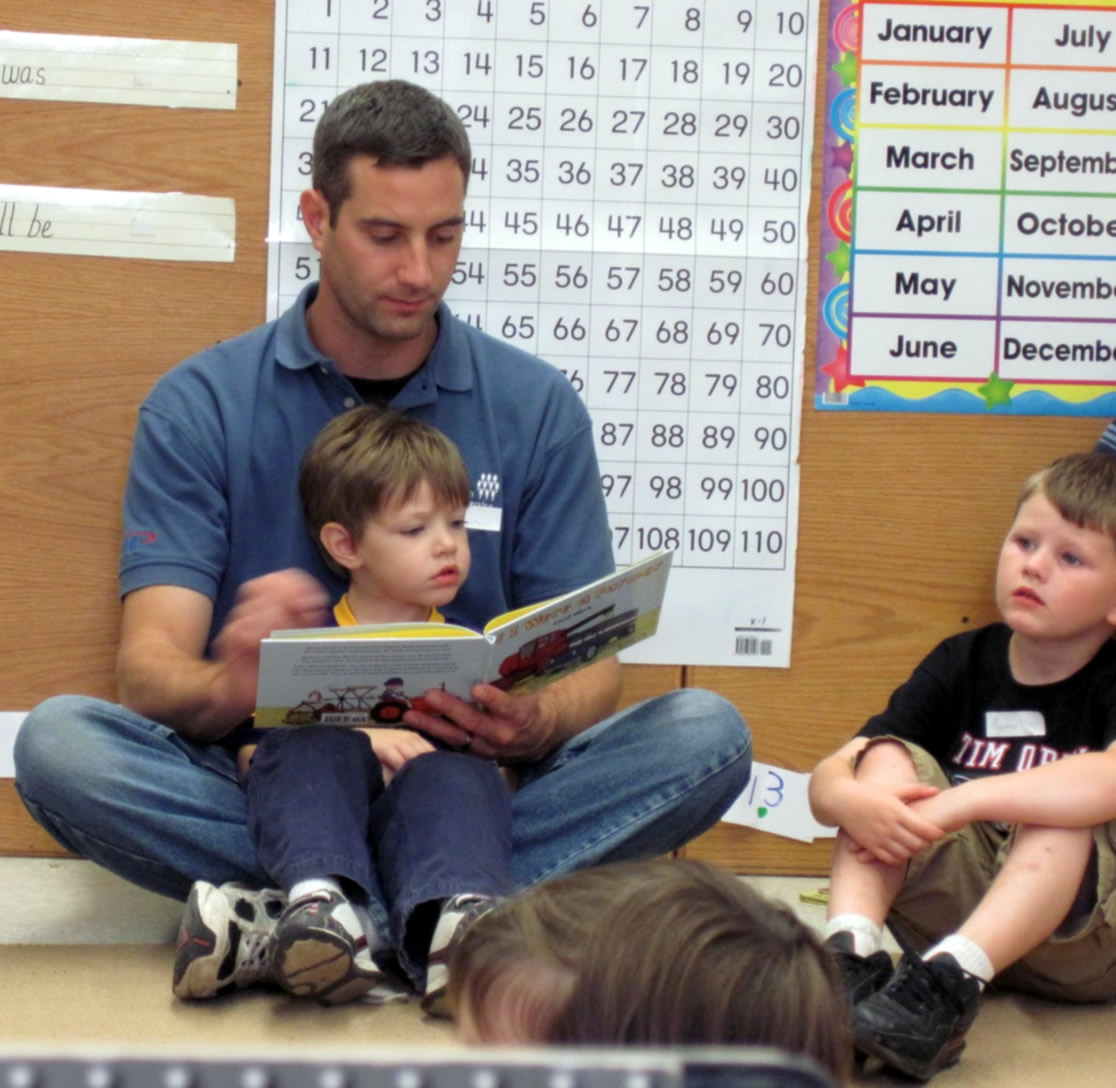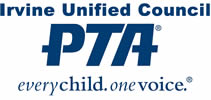Male Engagement
Increased Benefits Supported by Data
The Positive Benefits of Male Engagement
For Children1
- Learn more and perform better in school
- Exhibit healthier behavior
- Have fewer discipline problems
- Are more likely to participate in extracurricular activities
- Enjoy school more
** Nord, C.W., and West, J., “Fathers’ and Mothers’ Involvement in Their Children’s Schools by Family Type and Resident Status,” U.S. Department of Education, National Center for Education Statistics, 2001.
For Men2,3
- Heightened regulation and expression of emotion
- Expanded ability for caring and nurturance
- New understanding of empathy
- Delayed gratification of own needs
- Expanded sense of self and self confidence
- Increased self-scrutiny
- Better understanding of sexism and its impact upon children
- Deepened emotions and emotional intensity
2 “The Effects of Father Involvement: A Summary of the Research Evidence,” Father Involvement Initiative Ontario Network, Fall 2002 newsletter, www.webapps.ccs.uoguelph.ca/cfww/fira.
3 Glen Palm, “Involved Fatherhood: A Second Chance,” Journal of Men’s Studies, November 1993.
Also Found in Research
- A Call to Commitment – Fathers’ Involvement in Children’s Learning
- Modeling adult male behavior. Fathers demonstrate to their children that male adults can take responsibility, help to establish appropriate conduct, and provide a daily example of how to deal with life, how to dress, how to regulate closeness and distance, and the importance of achievement and productivity. If they have an active religious or spiritual life, fathers, like mothers, can serve as models in that area as well (Hoffman, 1971).
- Making choices. Children glean from their fathers a range of choices about everything from clothing to food to devotion to a great cause. This promotes positive moral values, conformity to rules and the development of conscience (Hoffman, 1971).
- Problem solving abilities. Research shows that even very young children who have experienced high father involvement show an increase in curiosity and in problem solving capacity. Fathers’ involvement seems to encourage children’s exploration of the world around them and confidence in their ability to solve problems (Pruett, 2000).
- Providing financial and emotional support. Economic support may be a significant part of a father’s influence on his children. Another is the concrete forms of emotional support that he gives to the children’s mother. That support enhances the overall quality of the mother-child relationship, for example when dads ease moms’ workloads by getting involved with the children’s homework (Abramovitch in Lamb, 1997).Highly involved fathers also contribute to increased mental dexterity in children, increased empathy, less stereotyped sex-role beliefs and greater self-control. And when fathers are more actively involved, children are more likely to have solid marriages later in life. (Abramovitch in Lamb, 1997).
Support Organizations
- Watch D.O.G.S (Dads of Great Students)
Asks fathers and significant men to spend one day a year at their child’s school. - Strong Fathers-Strong Families
Hosts Bring Your Dad to School Day, Dad & Kid Reading, Math and Science Nights/Days; Saturday workshops and staff trainings. - All Pro Dad
Host monthly breakfast for dads and kids, iMOMs for moms and the NFL Father and Kids Experience. - The Black Star Project
Their Million Father March asks fathers to take kids to school on the first day as a beginning of a year-long commitment. - The National Compadre Network
Facilitates involvement of Hispanic and Latino fathers and men. - The National Fatherhood Initiative
Offers organizational plans and materials for fatherhood programs, research-based insights and parenting tips for fathers and families. - Real Men Cook
improves the way the world celebrates family and community by fostering opportunities through education, forums, and programs, with an emphasis on wellness, fathers, and father figures. - The National Partnership for Community Leadership (NPCL)
Help fathers build their skills through training and effective parenting skills for men and fathers and relationship education skills for couples.
Key Strategies for Starting a Male Engagement Program
- Communicate directly to dads/male figures – How you and your PTA speak to members and potential members can impact the level of men’s involvement. Simply slimming down language and shortening messages in your communications can be more appealing to male readership. And be always sure to explain and emphasize how men’s unique involvement benefits kids.
- Just ask – Nearly half of men who responded to a recent National PTA survey said they haven’t gotten involved with PTA simply because they weren’t asked. Those involved said their spouses’ participation led to their own involvement. So encourage women in your PTA to invite the men in their children’s lives to get involved, and take your PTA to places with large male contingents – such as service clubs – to share our message and ask for participation and membership.
- Create men-focused groups and events – Surveys also show that men prefer to volunteer for hands-on projects and “dad”-only events with clear expectations. So organize special events and groups for dads to enjoy working on and being involved with together and define volunteer roles and expectations. However, never exclude “Moms” or other female role models from such groups or events.
- Respect men’s time – More than 70 percent of recently surveyed dads said time was a barrier to PTA involvement, and the majority said they wanted fewer meetings at more convenient times. Make efforts to schedule workdays in mind for all parents and organize results-driven meetings with clear agendas and topics.
- Celebrate engagement – When you start getting more men involved, it’s great to celebrate! Letting the school community know will help emphasize and publicize your welcoming environment for all parents and members. Thank dads publicly at meetings and in your PTA communications, and always encourage more male membership – we’re all in it together for our kids!
- Remain inclusive of all family structures – It’s important to encourage inclusion in PTA activities for male role models, but we must be respectful to students that do not have male figures in their families and always explicitly state that any parent or caregiver or trusted role model can participate in any of these male-encouraged events or activities.
Other Resources
- Michigan Department of Education has a Parent Involvement Toolkit with a section on Male Engagement
- Minnesota Fathers & Families Network has a variety of workbooks and publications available to promote healthy father-child-family relationships
- Grown & Flown Website covers the range of issues relating to raising kids ages 15-25 for all parents/caregivers. Articles are about High School, College Admissions, College, Good Parenting, Bad Parenting, and Lessons Learned from Other Parents and Grandparents.
Suggested Reading
- 52 Things Kids Need from a Dad by Jay Payleitner
- 88 Great Daddy-Daughter Dates by Rob & Joanna Teigen
- Strong Fathers, Strong Daughters by Meg Meeker, M.D.
- How To Talk So Kids Will Listen and Listen So Kids Will Talk (The How To Talk Series) by Adele Faber
- 20 Things Wives Love to Hear from their Husbands
Some Ideas for Meeting Topics & Activities
Topics
- Financial planning for college – have a financial advisor from your school community present (remember no endorsement and material should just keep to the facts)
- Disaster Prep Planning – work with local CERT volunteer leaders and CERT clubs to create awareness and neighborhood plans
- Gender Communications – better understand the styles and how to effectively communicate with the opposite gender (bring in an expert or form a book club group)
- First Aid – learn how to deal with broken bones, concussions, sprained ankles, dehydration, etc. by inviting one of your parent doctors or first-responders
- Coaching – often men coach youth sports and knowing how to properly coach can be a learned skill; reach out to a coach that embodies positive coaching skills to provide tips or form a book club group as there are some good published coaching books
Activities
- Host a welcome table at one of your 1st Day or back-to-school events and promote PTA membership
- Read a book to a class once a month
- Establish a set-up/tear-down crew for various events
- Host a campout or pancake breakfast at school
- Create a handy-person crew to help with minor building maintenance and support; or for construction of school play sets, carnival games, Halloween haunted houses, etc.
- Holiday touch football or flag football games
- Coordinate a Family Hike or Bike outing
- Start a Book Club, Go Kart building & racing teams, bottle rocket building and launch parties, family fun nights, etc.
